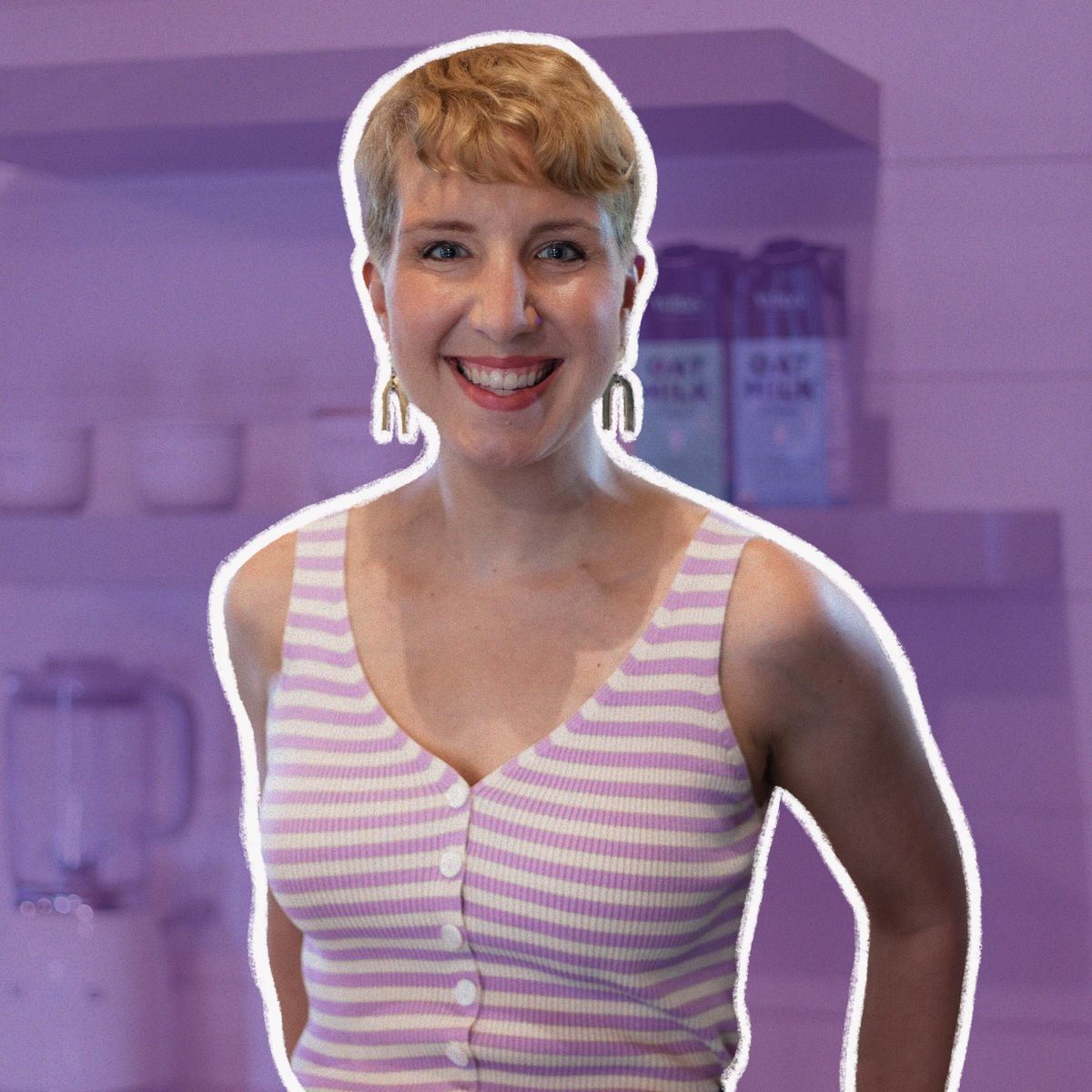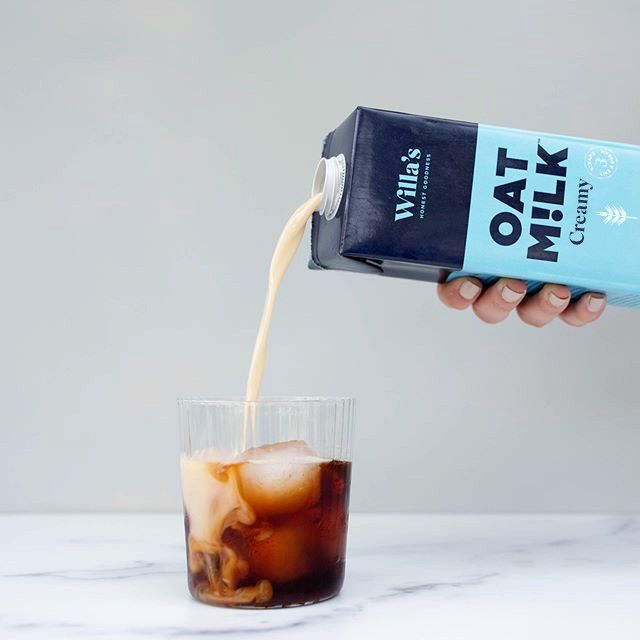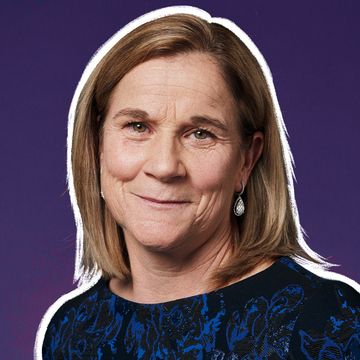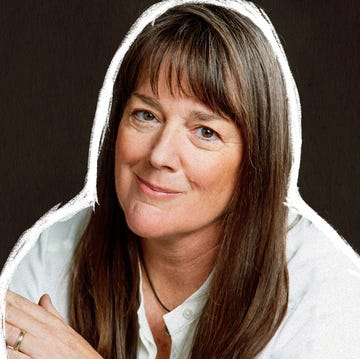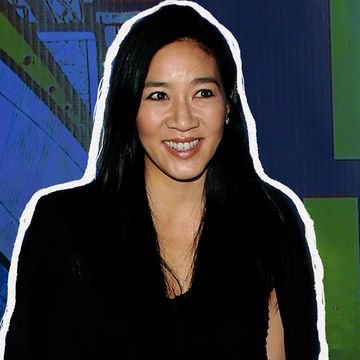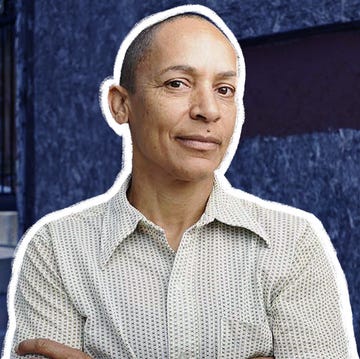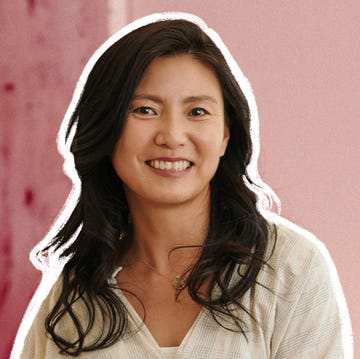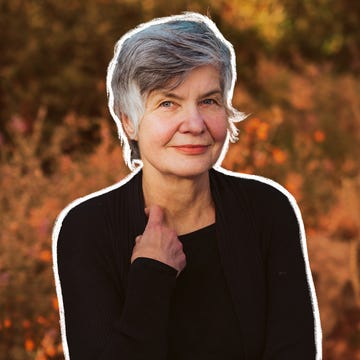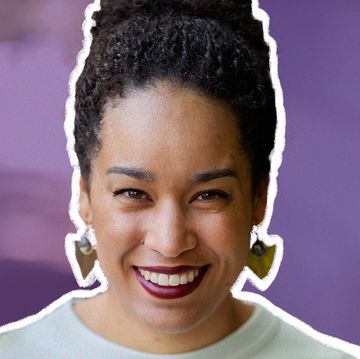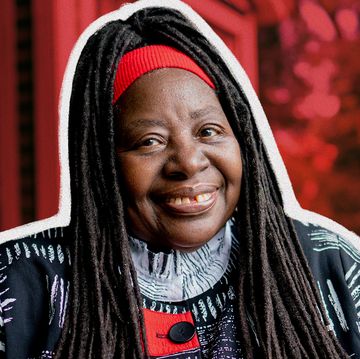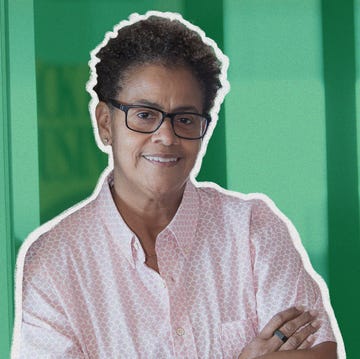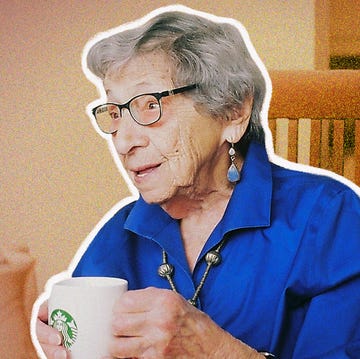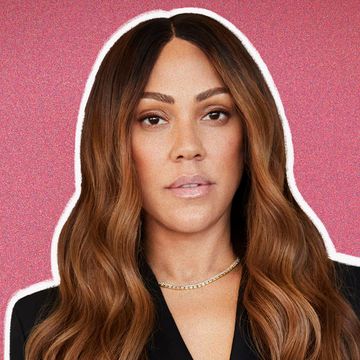In the ongoing Shondaland series Head Turners, we meet interesting women from every facet of life who are crushing it in their careers. From artists and tech mavens to titans of the boardroom, these women are breaking barriers, and they’ll share how you can too.
When Christina Dorr Drake left her corporate job in advertising in 2018, she was already embarking on a major life change by teaming up with her husband and sister to found an oat milk brand named in honor of the siblings’ grandmother Willa, who intuitively and presciently understood the plant-based product’s benefits. Then, tragedy struck.
Instead of fully introducing Willa’s Kitchen into the marketplace, Dorr Drake faced an unexpected challenge in January 2020. “We got blindsided by one thing after another,” she says about her early breast cancer diagnosis, which was additionally surprising given the lack of history of breast cancer in her close family. The Minnesota-raised, Brooklyn-based entrepreneur leaned into building the business while going through intensive medical treatments — all at the height of the pandemic.
Having made a full recovery, Dorr Drake now operates Willa’s with a sharpened purpose and perspective. She doesn’t romanticize anything about her cancer experience. Her dedication to honoring her grandmother’s memory and maintaining high quality and transparency in an industry that promises much but often falls short is stronger than ever before.
“We haven’t chosen the easy path,” Dorr Drake attests, “but we are on a mission to demonstrate that you can be purpose-driven and live by your values — and also be a profitable, healthy company.”
Shondaland recently spoke with Dorr Drake about how life and work converged in unexpected, powerful ways to reaffirm the choices and risks she’s taken in business.
JESSICA RITZ: What was your background before you founded Willa’s?
CHRISTINA DORR DRAKE: I worked in strategy on the agency side, which is like looking at the intersection between the business opportunity, the target audience, and where culture is headed. It was wonderful training ground for starting a business because it’s super-collaborative and fast-paced.
I worked on a bunch of different accounts, but the one that I was working on just before we started Willa’s was Panera, the fast casual chain, when they were taking out all the artificials and preservatives from their menu items. Literally, hundreds of ingredients were being slashed. I got this whole education on all the weird stuff that goes into our food, and that was actually one of the catalysts for starting Willa’s. I was shocked to see that plant-based milks had ingredients that fast-food restaurants were taking out of their menu items.
JR: Why did oat milk capture your heart?
CDD: My grandmother made delicious oat milk using real ingredients like vanilla extract and sea salt, and we wanted to bring her recipe to the world. The brand is named after her. As we got further down the entrepreneurial path, we kept learning more things about the way plant-based milks are normally made. We thought this doesn’t align with our values. This doesn’t live up to our grandmother’s name. There has to be a better, more honest, and more sustainable way to do it. And we essentially redesigned the way plant-based milk, and oat milk specifically, is made in the process.
JR: How did you start to disrupt the alternative plant-based milk industry?
CDD: We wanted to use real ingredients. On the flip side, we discovered that there’s a ton of food waste in the making of plant-based milk. You often find oat milks have a ton of sugar and not a lot of the benefits of protein or fiber. Typically in the process, 20 to 30 percent of the material is discarded, and it’s usually the healthiest parts. We thought there has to be a way to use the whole, entire oat, and that’s exactly what we did. We figured out a way to get this rich, creamy taste. It’s got less sugar, and it’s got all the protein and fiber. It’s zero food waste and the best choice for the planet.
JR: Why did your grandmother make oat milk? Was it a family tradition?
CDD: She was an incredible cook. She was very passionate about food, health, and had an interest in using real ingredients. She instinctively knew that oats were really good for digestion and easy on most people’s stomachs. She was making oat milk for her kids and grandkids when they didn’t feel well or if they couldn’t digest dairy or milk. She was just incredibly ahead of her time and had amazing insight and intuition.
JR: How did you start doing it on your own?
CDD: First, we did hundreds of tests just in our kitchen. My sister and my mom primarily did that, testing out different tweaks to make my grandmother’s recipe even better and work better with coffee. My sister was a chemical engineer and understood how to take my grandmother’s recipe and scale it up. From there, we wanted to find a partner who had all the machinery and equipment. My sister spent an entire summer interviewing all of the different options, and she was like, “There’s one company that I trust and feel like they’d be a really good partner for us. They don’t normally work with small brands, but they were willing to take a chance on us.”
JR: How did your own health journey impact you?
CDD: I made the career change and decided to give Willa’s a shot in summer of 2018, and I was blindsided by a breast cancer diagnosis in January 2020. I was 36 years old. I was a health nut — imperfect! — but I felt like I was doing the right things. I didn’t have any family history aside from some great-aunts who had had breast cancer and at a much older age. I did not see this coming after my first mammogram ever.
On one hand, I feel incredibly fortunate because we caught it early, and my mom was encouraging me to do monthly self-exams, which, unfortunately, young women are not really encouraged to get mammograms and do self-exams. I feel super-fortunate we caught it when we did. I immediately started chemo and immunotherapies and went through radiation. I had lumpectomy and lymph node surgery. By the time they went in for surgery, it was almost all gone. It was like stage zero or smaller, and there was none in my lymph nodes. They call that a complete response. It means it’s very unlikely to come back, which is also huge.
I can’t prove this, but I certainly think it helped at least for me to feel good that I worked out religiously after each of my chemo appointments. I ate mostly plant-based [foods]. I didn’t eat or drink things that don’t work for me; dairy is one of those. I felt good enough to be able to work full time and work out through all of that, even some really intense chemo drugs. I still feel super-fortunate. It was not a fun year. It was a nightmare.
JR: How did you keep your focus and see it through to fully launch? At any point, especially given the challenges during the pandemic, were you tempted to just walk away from the project?
CDD: I was already feeling like we were on to something and that this work we were doing creating Willa’s was important. Cancer just strengthened and validated that because it taught me that there are no dress rehearsals in life. This is it. This is our shot. We aren’t here to create a less-bad alternative. I want to have a positive impact on people and on the planet while I’m here. It also further strengthened my commitment to making sure that whatever products we create, we are prioritizing health, and we are living by our values and living up to my grandmother’s name.
As a cancer survivor who is really health focused, you start to question every single thing you ever ate or consumed in your whole life. It just made me feel like it’s hard enough to be a consumer. We need to continue to double down on using ingredients that we know are going to have a positive impact on people’s health — and equally taste really delicious.
Jessica Ritz is a Los Angeles-based writer who has contributed to Architectural Digest, Bon Appétit, Coastal Living, Los Angeles Times, Palm Springs Life, and Los Angeles magazine. Follow her on Twitter @jessnritz.
Get Shondaland directly in your inbox: SUBSCRIBE TODAY
